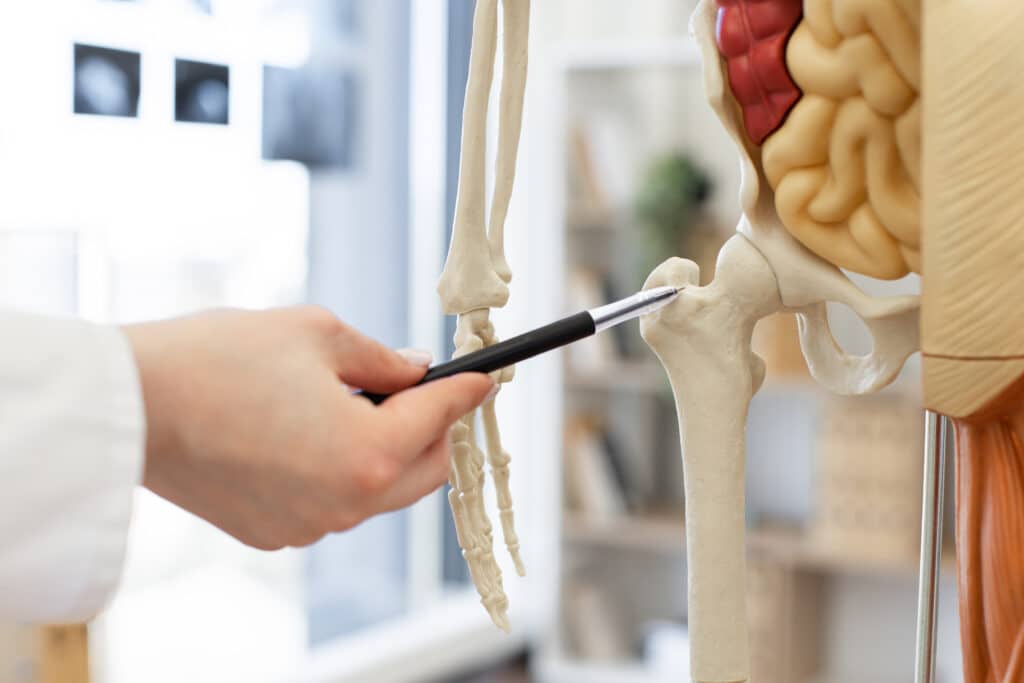If you're experiencing painful hip pain, or your hip joint aching, it can really affect daily activities, from walking and exercising to simply getting out of bed. Finding the proper treatment is crucial, whether it's a sharp, stabbing pain or a dull hip joint aching pain, so you can get back to doing your daily activites without dealing with hip pain. Understanding what causes hip discomfort and when to seek expert care can help you achieve a faster recovery.
The hip joint is a ball-and-socket structure that connects the thigh bone (femur) to the pelvis. It provides stability and a wide range of motion, making possible activities like walking, running, and bending. Because it bears a large part of the body's weight, the hip joint is vulnerable to conditions or injuries that can cause pain and limit movement. Learn more about ONJ hip care.
A painful hip can develop from various issues, including:
Depending on the underlying cause, hip pain symptoms may include:
While hip pain often stems from joint or muscle issues, other conditions can mimic hip pain, such as:
Hip pain causes vary and can also be other conditions. Seeing help from an orthopaedic specialist to determine the cause of your pain and get you started on the right path of treatment and care.
At OrthoNJ, our orthopaedic specialists provide expert evaluation and treatment for hip pain. Whether the issue is bursitis hip, hip flexor pain, or arthritis, our team offers advanced imaging, physical therapy, injections, and, when necessary, surgical options to restore mobility and reduce pain.
You don't have to stay in pain. Contact one of our ONJ divisions to schedule an appointment.

Managing mild hip pain at home can include:
Resting and avoiding aggravating activities to prevent further strain.
Using ice or heat to alleviate inflammation and relax muscles.
Using over-the-counter pain relievers such as ibuprofen or acetaminophen.
Gentle stretching and strengthening exercises to maintain flexibility and support the hip.

Ignore persistent or worsening pain. Delaying treatment can lead to further complications.
Rely solely on pain medication. Tackling the underlying cause is essential for lasting relief.
Push through the pain. Avoiding activities that worsen symptoms can help in recovery.
The recovery time for hip pain is dependent upon the underlying cause. With proper care, mild strains or bursitis may resolve within a few weeks, while chronic conditions like arthritis may require ongoing management. Severe cases, such as fractures or labral tears, may take months to heal and could require surgical intervention.
If hips hurt consistently or lower back and hip pain interferes with daily life, seeking prompt care from one of OrthoNJ's top specialists can lead to the best possible outcome. Contact us today to schedule an evaluation and take the first step toward lasting relief.
OrthoNJ is different from your typical medical provider. Unlike many in the industry, we prioritize patient care over profits. Our six divisions work collaboratively to ensure the best outcomes for our patients. We believe in the "Power to Put Patients First," our doctors and divisional partners strive to uphold this commitment to our patients in every aspect of our medical care.